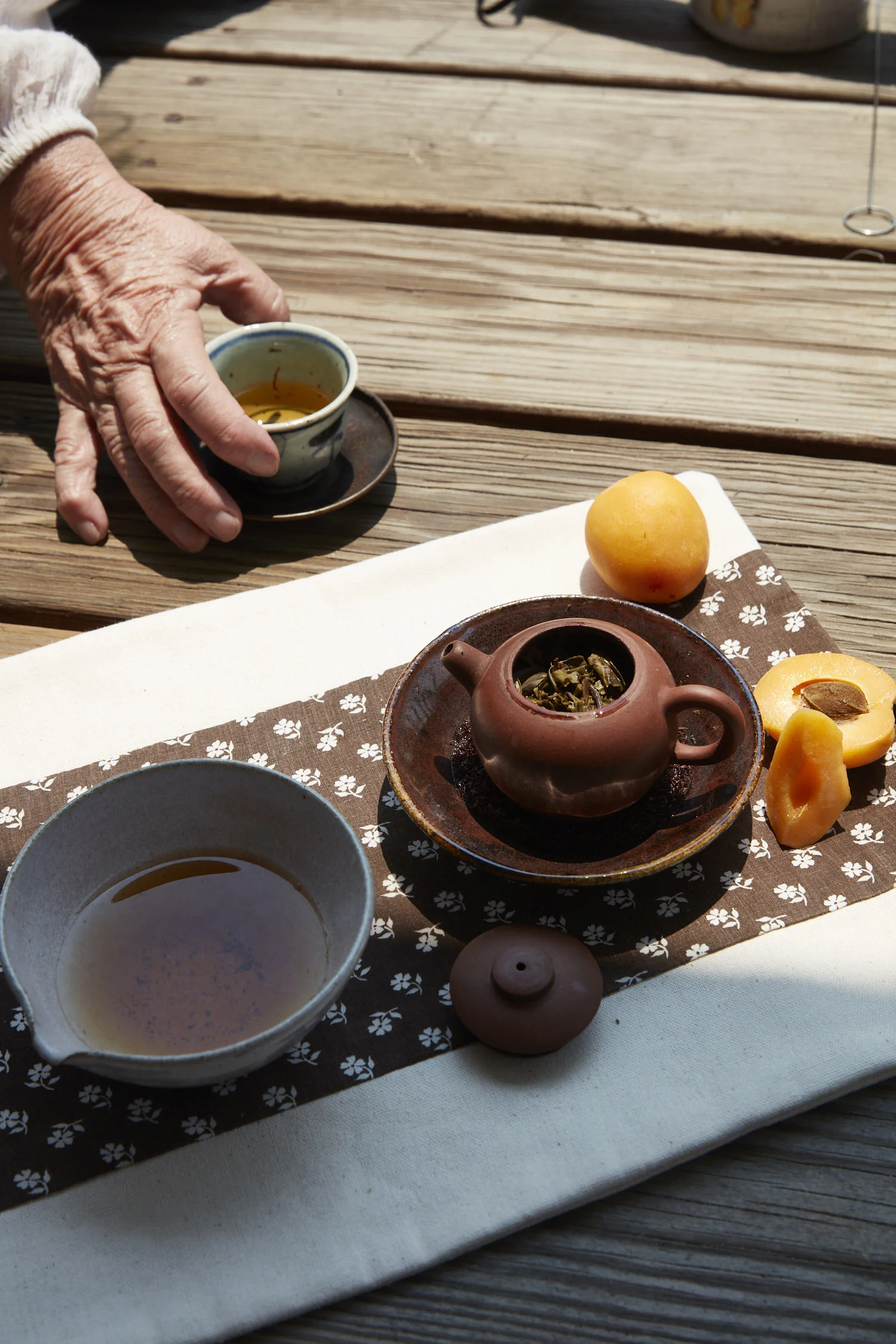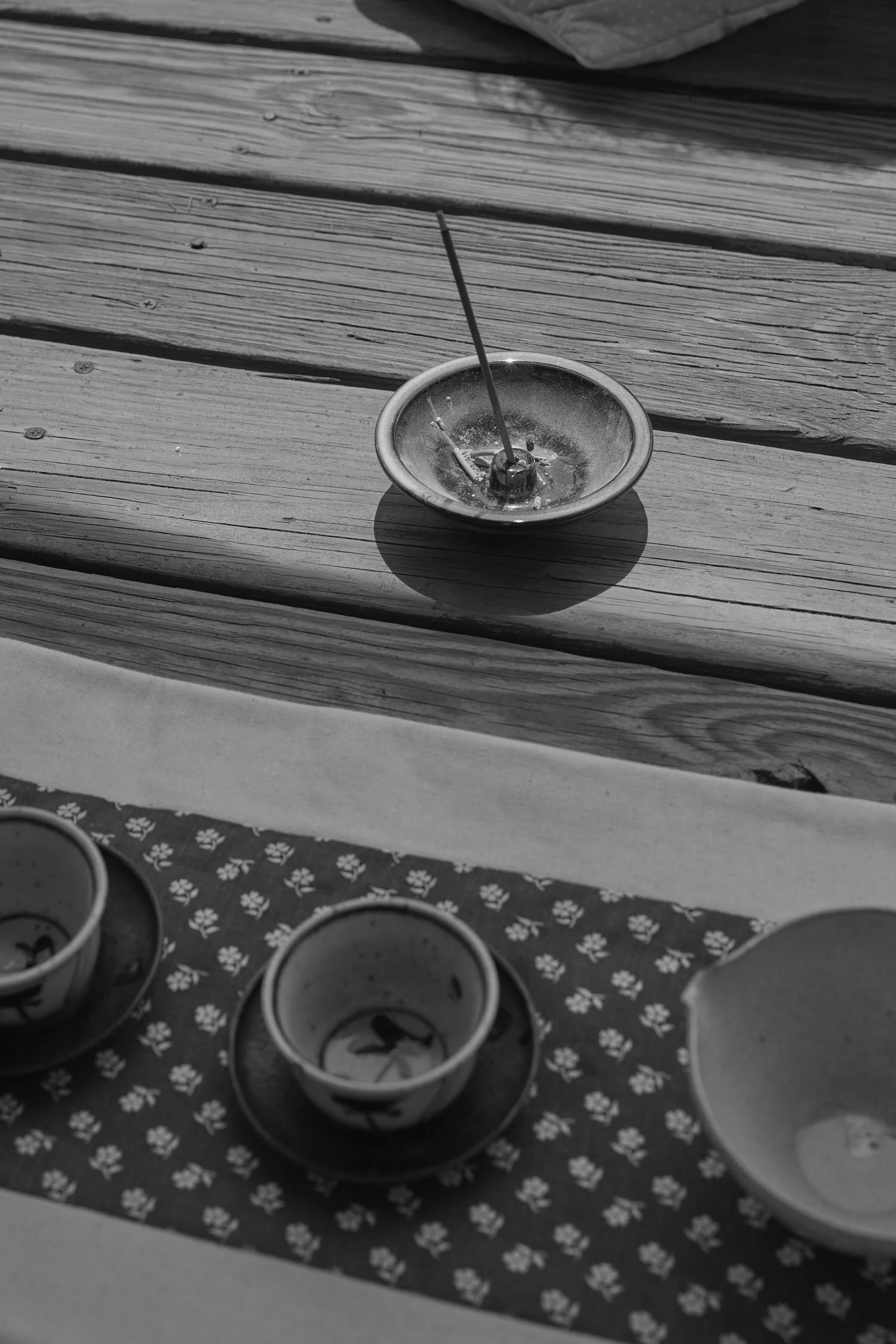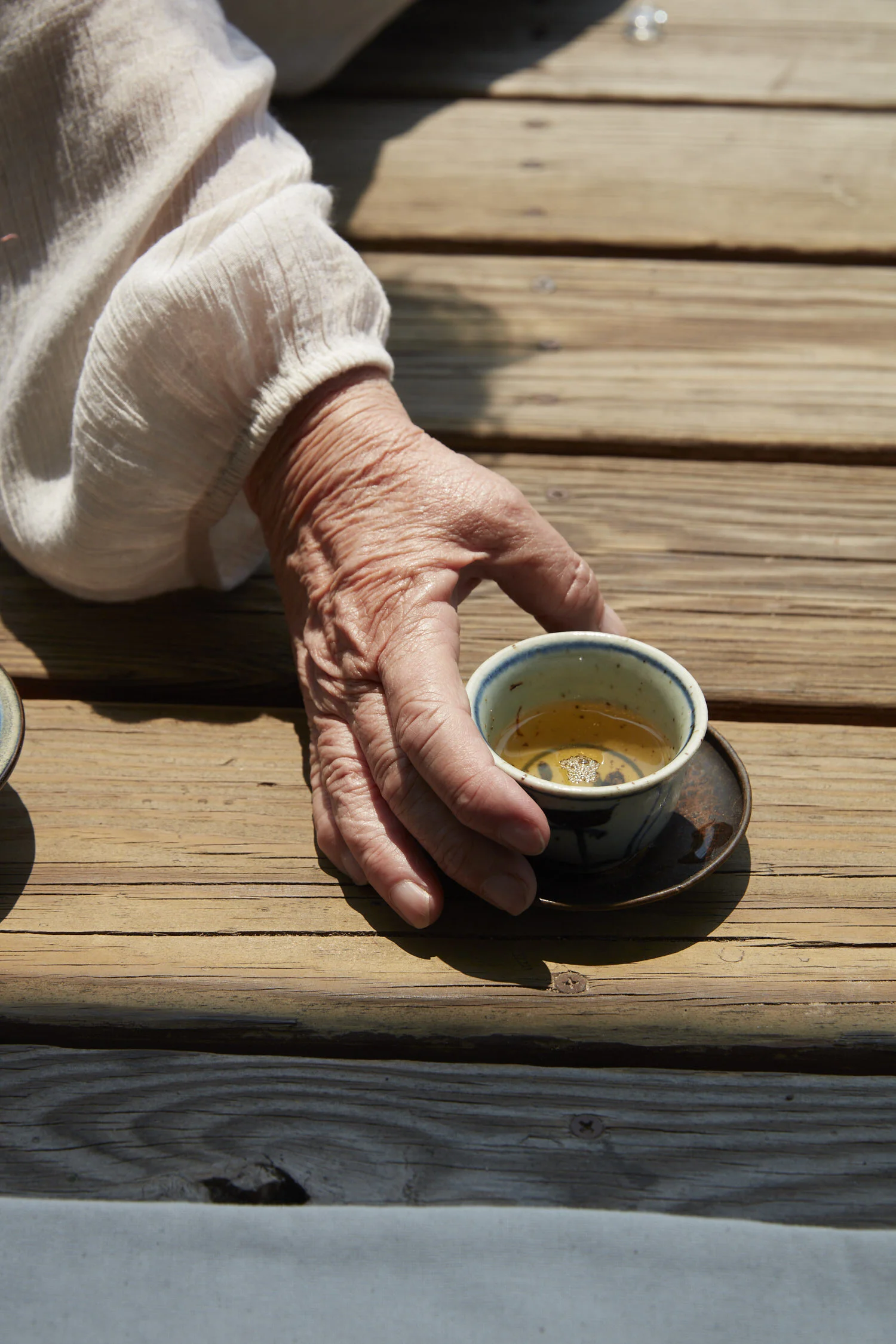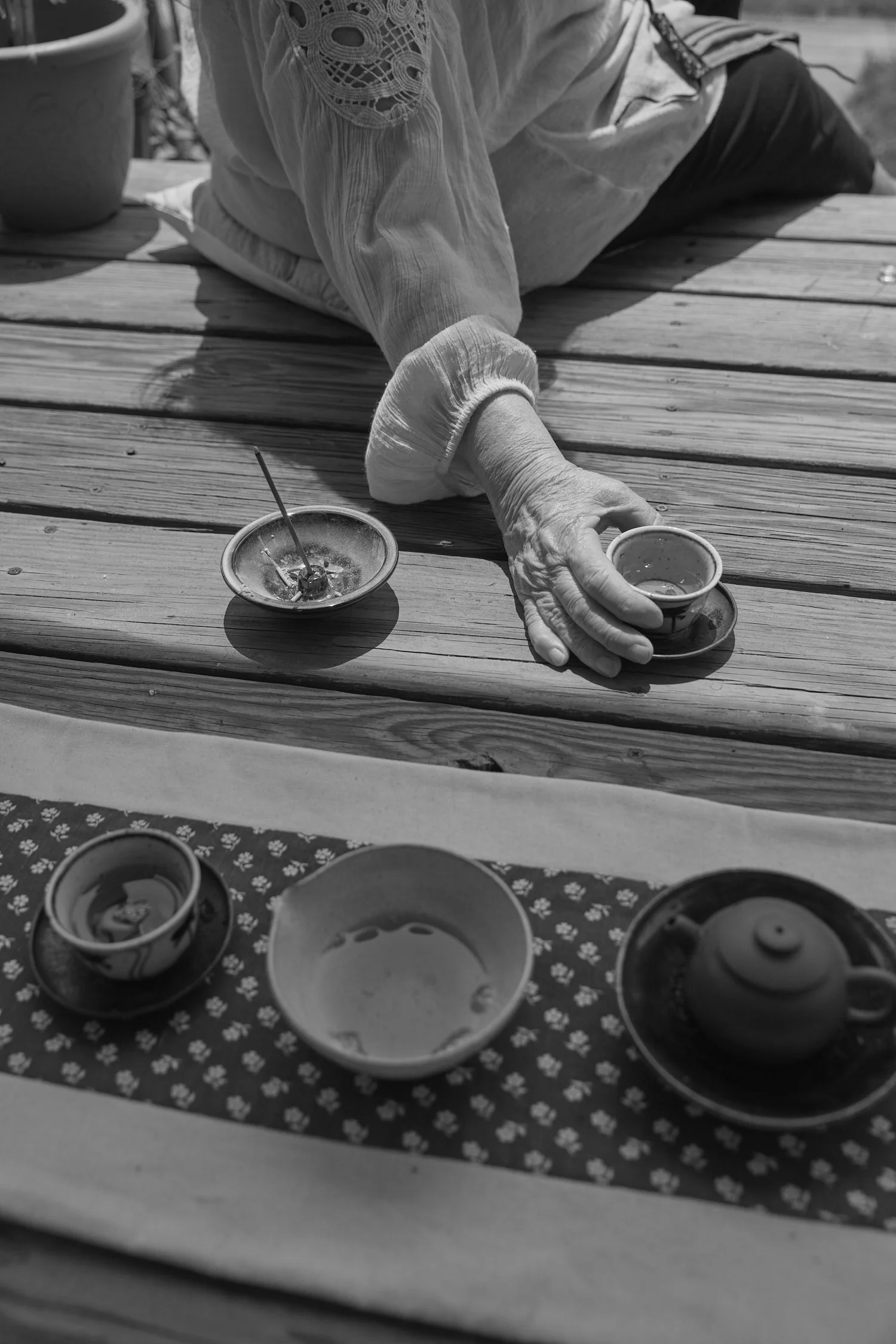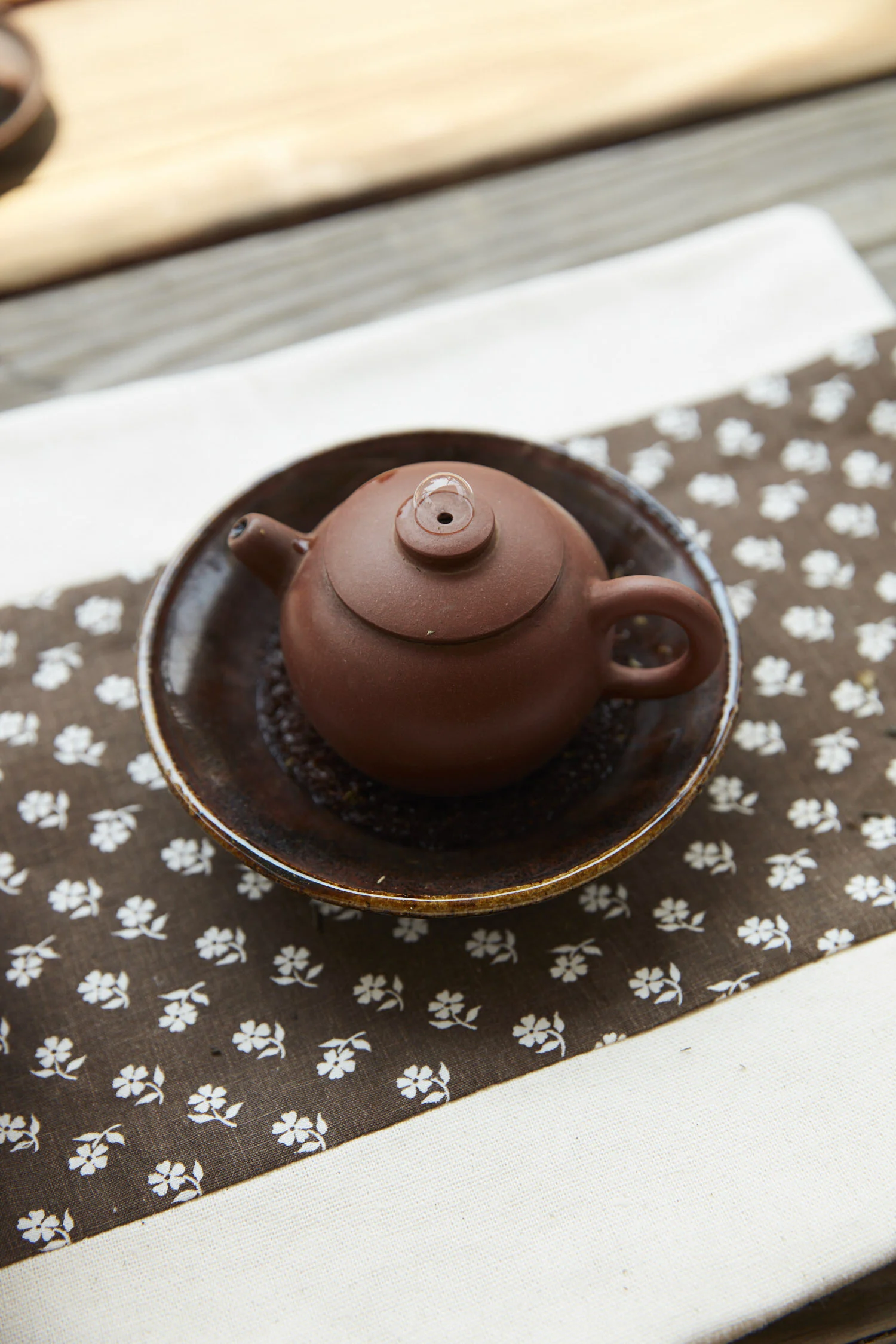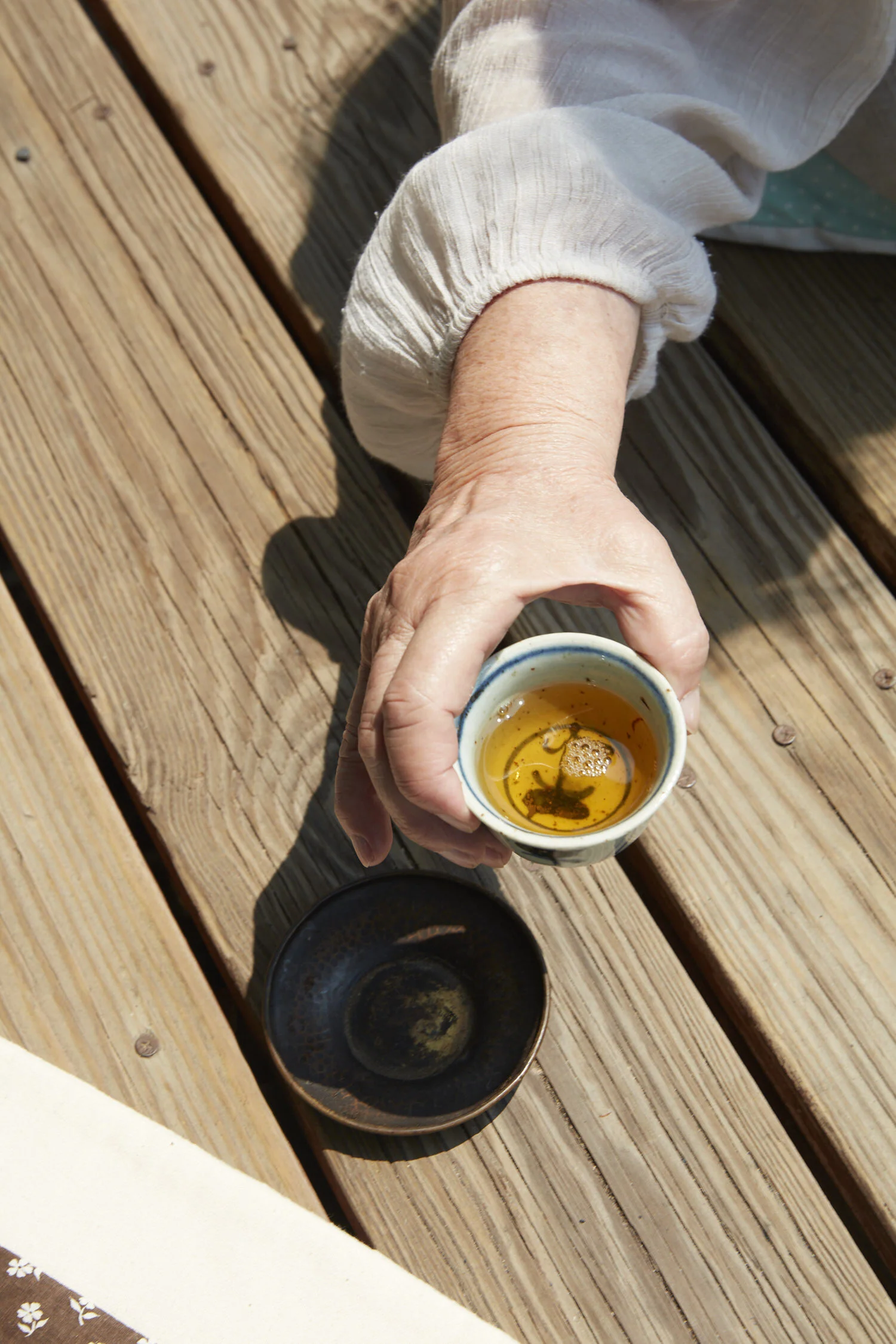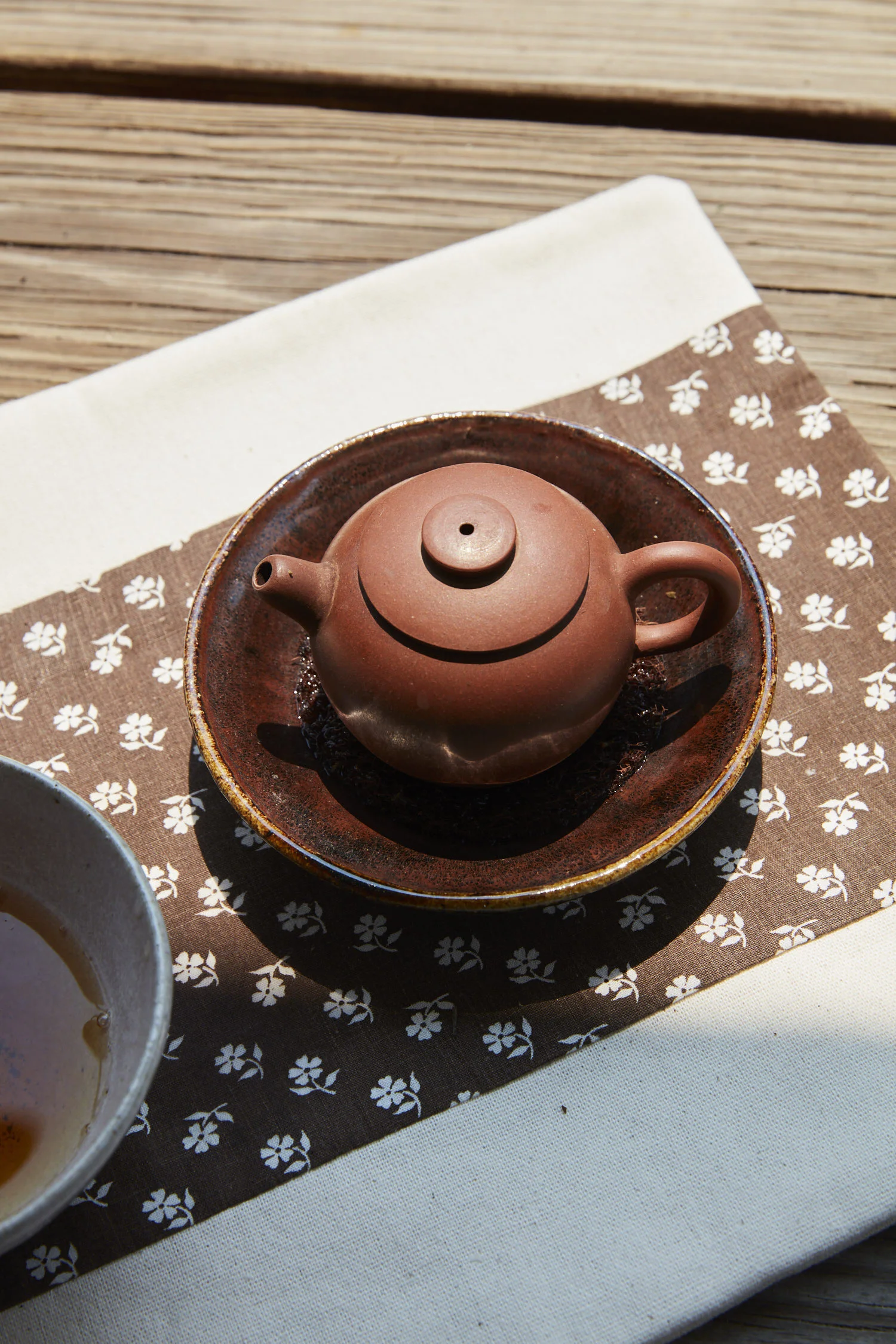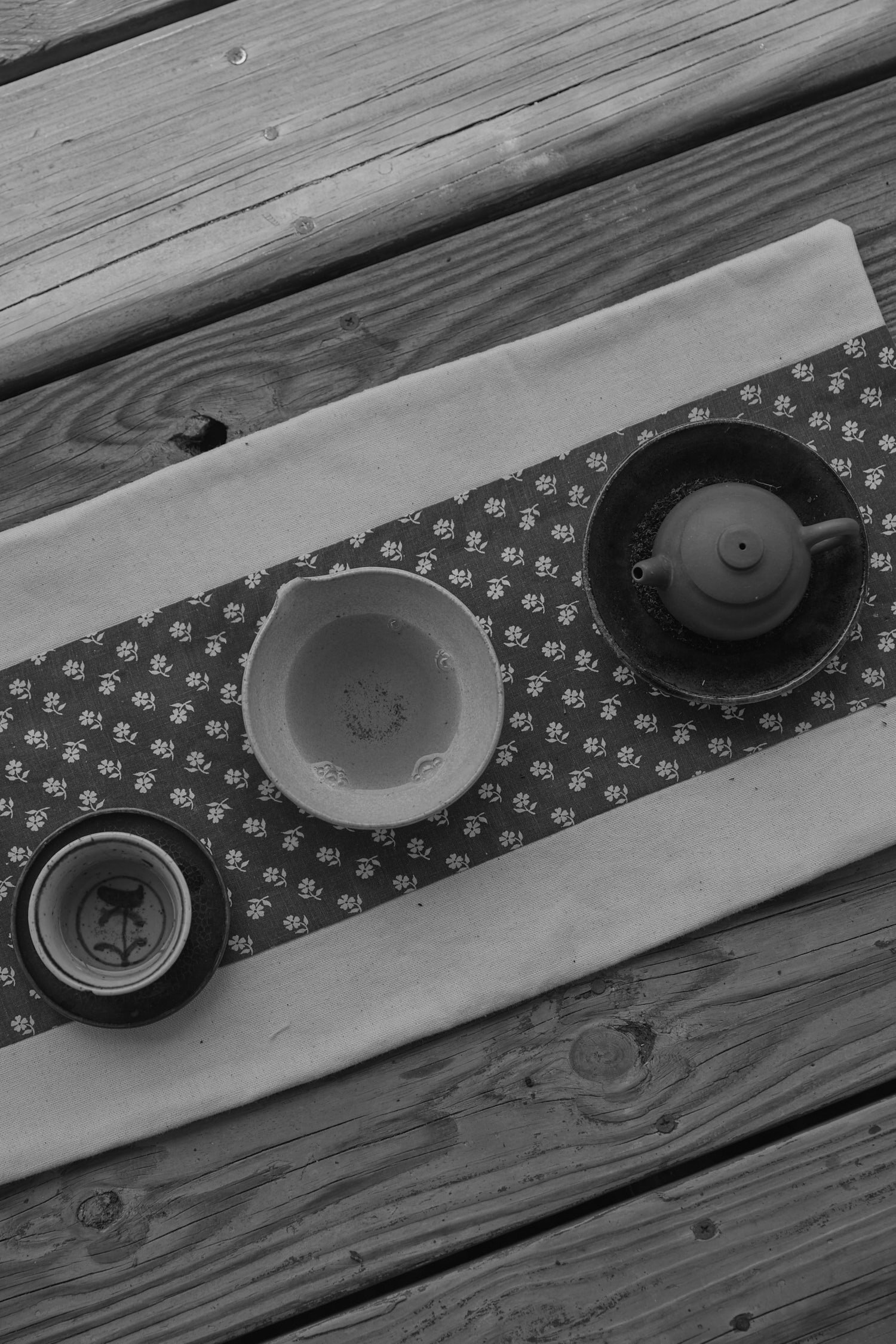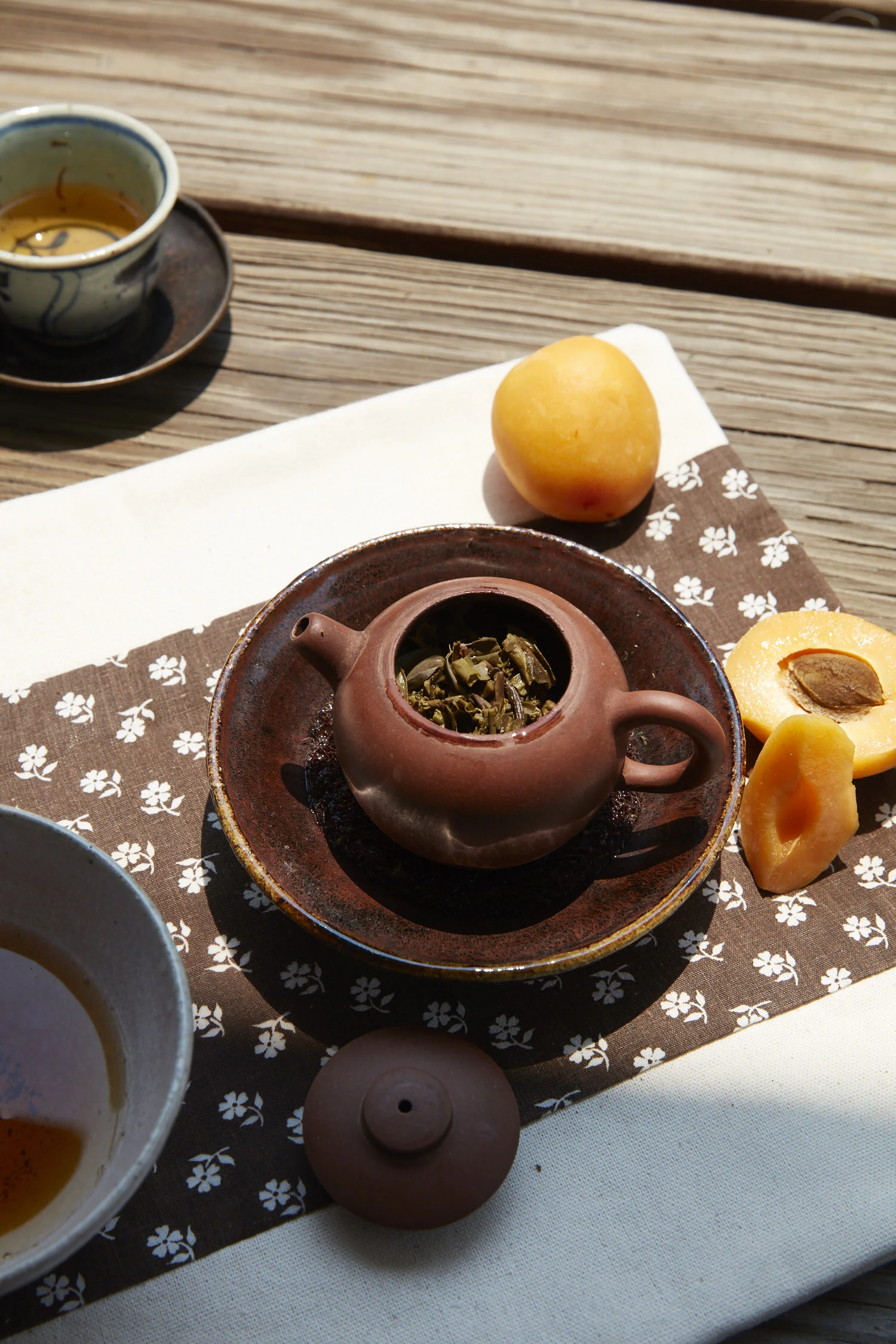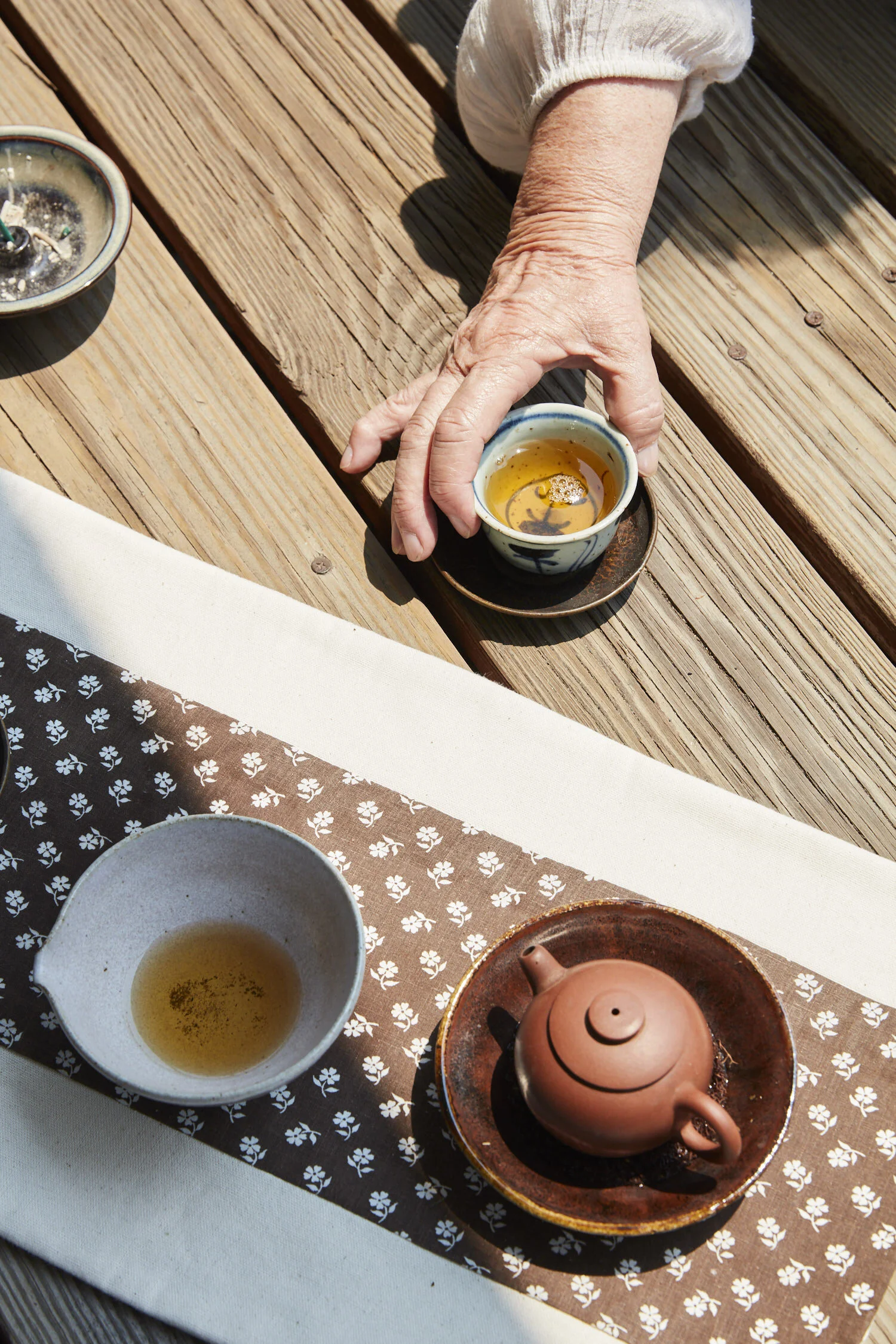L-Theanine in Matcha - What’s the Deal?
You've probably heard that tea has more caffeine...
But it's also packed with an amino acid called L-Theanine, which handles a lot of the really cool feelings, flavors, and health benefits that all true tea has.
This article will dive right into the magic of L-Theanine –
We'll go over some of the basic science, health benefits, and much more...
Grab some tea and let's get going!
What is L-Theanine?
Plain and simple, L-Theanine is a non-protein amino acid that is found in the tea plant, Camellia Sinensis, and some mushrooms.
It produces a relaxed, focused state in the mind and body.
But as you'll see later, there are many more benefits.
L- Theanine is thought to cross the blood-brain barrier, meaning it exerts directly its effects on the brain.
And because it can cross this barrier, the effects are felt quite quickly (within about 30 minutes).
It increases the activity of alpha waves within the brain, which are often associated with relaxation.
Before we dive more deeply into L-Theanine, let's quickly get into some of the geeky science...
What is an Amino Acid?
An amino acid is a building block for proteins.
Meaning they combine to form proteins in the body, which are essential for life.
The human body needs 20 different amino acids to function properly.
Your body can actually make about 10 of the 20 amino acids it needs...
But it can't make all of them.
The rest comes from the foods you eat and the things you drink.
L-Theanine in Tea
Tea actually contains many amino acids, but L-Theanine is the most abundant.
L-Theanine, which is actually quite rare, makes up about 1-2% of the weight of a tea leaf.
A 200ml brewed cup of tea contains anywhere from around 8-25mg of L-Theanine.
Controlling the Amount of L-Theanine in a Tea
What's really interesting (at least to me) is that different growing methods can change the amount of L-Theanine content within the leaves.
Teas grown in the shade produce more than teas grown in direct sun.
Quick Info: Some Japanese teas, including matcha and gyokuro are grown and then shaded, which increases the amount of L-Theanine before harvesting.
Not only does L-Theanine have a direct correlation with flavor, it's also responsible for the feeling you get when drinking tea...
L-Theanine produces an interesting body feeling, which makes most people feel relaxed.
It's sometimes even euphoric.
In fact, L-Theanine is one of the reasons why monks have long preferred tea as their go-to beverage of choice during long meditations.
The caffeine keeps them awake, and the L-Theanine keeps them calm, alert and focused.
How Do Amino Acids Influence Flavor?
Generally, amino acids control a lot of what we perceive as flavor.
They interact with other compounds and change how some flavors are perceived.
So in some ways, they have a taste:
Bitter
Savory
Sweet
And in some ways, they influence how something tastes.
Take the classic example of MSG
The sodium salt of a common amino acid called glutamic acid.
The addition of this to certain foods changes and enhances how human taste buds interact with certain flavors.
In some teas, such as Japanese matcha and sencha, higher L-Theanine contents in the leaves have a direct impact on the flavor of the tea.
But we'll go over this more below.
Does all Tea Have L-Theanine?
All true tea contains some L-theanine.
True tea just means it comes from the camellia sinensis plant.
Different teas – so naturally different varieties of the same plant –
as well as different processing styles, all lead to different levels of L-Theanine in the resulting cup of tea you consume.
Do Some Teas Contain More L-Theanine?
Yes.
Different varieties of the plant have different levels of L-Theanine in them.
But what's even cooler, is that some growing methods can influence the amount as well.
For example, look at Japanese Sencha green tea and Matcha.
The plants used to make these teas go through an intentional shading process that stresses out the plant and increases the amount of L-Theanine in the tea.
This is done because it changes the flavor of the tea.
And because it produces a relaxing feeling when drinking the tea.
And Chinese White tea, which is minimally processed, retains high levels of L-Theanine.
Which makes it incredibly relaxing to drink.
And even though it has a decent amount of caffeine, it often makes you feel mellow.
So in some ways, it counters the effect of caffeine.
L-Theanine in Matcha Green Tea
Matcha is super special.
Partially because of its unique flavor and the fact that it's a stone-ground green tea.
But the magical part of matcha is the L-Theanine.
It's responsible for the super unique umami note found in matcha.
Which is the savory brothy note matcha has associated with it, which is known as umami.
Tea growers making matcha purposely shade the tea leaves for up to a month before harvest.
This stresses out the leaf and thus increases L-Theanine levels in the resulting tea.
The amount of L-Theanine in these leaves can be up to 4 times as much as unshaded teas!
This increase creates the prominent, desired umami note.
Unlike other green teas, matcha is powdered, mixed with water, then consumed.
This means you actually drink tiny little ground-up pieces of the tea leaf that contain higher amounts of the L-Theanine amino acid...
And because there are higher levels of L-Theanine, the feeling you get from drinking matcha differs from that of a normal brew of green tea.
The bright fresh flavor of the tea is accompanied by a deep, focused, calming sensation.
Does L-Theanine Have a Flavor?
It doesn't have a flavor, per se.
But it's responsible for the savory and umami notes in tea.
Basically, the L-theanine amino acid changes how tea is tasted on the palette, but it doesn't have its own distinct flavor.
How Does L-Theanine make you feel?
It makes you feel pretty good.
L-Theanine is known to produce a calm, alert focus.
This is because it can break the brain-blood barrier.
Meaning it affects your nervous system quickly.
And promotes chemicals that promote a calming effect to run through the brain.
While the process is a bit more complicated than that, the important thing to know is that L-Theanine produces a calm state that usually still allows for deep focus (not sedation).
Getting Tea Drunk
You may have heard of the term "tea drunk".
Yes.
It's absolutely a thing.
All thanks to L-Theanine.
Basically, tea drunk is a feeling that occurs in a tea drinker that results from caffeine and the L-theanine in the tea mixture.
This produces a calm, focused buzz (or drunk).
Part of the reason this occurs is that of L-Theanine's ability to break the blood-brain barrier and directly affect the brain.
Does L-Theanine Help With Sleep?
You may have heard that L-Theanine helps with sleep, but should you drink matcha before bed?
Well, logically it might seem to make sense that its high L-Theanine content could help you get to sleep...
Some research suggests that L-Theanine may help people get to sleep a bit more quickly because of how it relaxes the mind and body.
But the key thing to remember is that L-Theanine is just one part of matcha –
If you drink any tea for the L-Theanine content before bed, you may actually keep yourself awake because of the high caffeine content in tea.
So that's why people sometimes opt for L-Theanine supplements that help with relaxation.
But contain no caffeine.
5 Health Benefits of L-Theanine
First things first –
I'm no doctor, just a tea lover.
So take what I say with a grain of salt, and contact your actual doctor if you have any questions relating to your health...
This info is just a general guide, not medical advice...
But like I briefly mentioned above, L-Theanine is known for its ability to make you feel relaxed.
So in some ways, it helps with calming the mind and body and with reducing anxiety...
But with that being said, when you consume tea with high levels of L-Theanine, you're also likely consuming large amounts of caffeine.
Which can disrupt some of the calming attributes if you're extremely caffeine sensitive.
1 - Help with stress and anxiety
L-Theanine has been linked to lower levels of stress and anxiety
But before we get there, it's important to once again remember that tea is also full of caffeine.
So if you're super sensitive to caffeine, then you may still feel the anxiety-causing effects of caffeine...
But with that being said, L-Theanine itself quickly enters the brain and causes certain chemicals in the brain to flow.
Studies suggest that L-Theanine stimulates the release of serotonin and dopamine, and increased GABA levels within the brain
Extra info: GABA is an amino acid that acts as a neurotransmitter.
These chemicals are associated with stress reduction.
Some studies have shown that after just 4 weeks, participant's stress and anxiety levels dropped significantly, while their cognitive function improved.
But green tea consumption,
For example, it does not necessarily result in anxiety reduction.
It all depends on:
The specific person
Their body
Their sensitivities
The amount of tea consumed
Plain and simple – some people react differently to L-Theanine consumption.
2 - Increased Cognitive Function
L-Theanine breaks the blood-brain barrier and quickly affects the chemistry in the brain.
It stimulates the release of certain chemicals, some of which cause relaxation and stress release.
But some all help with increase cognitive function –
meaning better brain functions, quicker comprehension, and more.
3 - Increased Focus
Tea has long been the preferred beverage for monks during long meditations.
This has a lot to do with the caffeine that keeps them awake.
But more important is the fact that tea provides a calm, sustained focus that's perfect for meditation.
This increased focus comes from the L-Theanine content.
Because of its direct effect on the brain, L-Theanine can provide a deep, calm, sustained focus that can last for quite a while.
L-theanine is linked to increased alpha waves within the brain, which occur naturally while meditating and daydreaming.
It's thought that they play a role in depression reduction and increased creativity and focus.
4 - Immune System Boost
L-Theanine is also an immune booster.
Some studies suggest that the consumption of L-Theanine regulates the release of cytokines.
Which are proteins that communicate between immune system cells and non-immune cells, stimulating the immune response in humans.
5 - Blood Pressure Reduction
L-Theanine has been shown to help reduce blood pressure.
Some studies suggest the stress-reducing effects of L-theanine lower blood pressure.
But one key thing to remember is that caffeine is also present in tea in high amounts.
So the consumption of caffeine may actually cause some stress.
But with that being said, it may depend on how much you consume.
L-Theanine is also sold as a supplement, so it is possible to take it without caffeine if you're looking for some of the health benefits.
(But be sure to consult a doctor if you have some factual questions about blood pressure or if you want to take some supplements.)
The Final Cup
Now that you know all the cool little details about L-theanine –
Like what it is, how much you find in tea, how it makes you feel, all of its health benefits, and so much more.
You’re ready to dive deeper into the world of tea and tea culture.
Here at Ooika, both are quite important to us and we’d love to have you join us!
If you want to learn more about tea and tea culture, or if you just want to connect to fellow tea lovers, comment below.
I read and respond to every comment on the blog.
Talk soon.
MORE ON MATCHA

